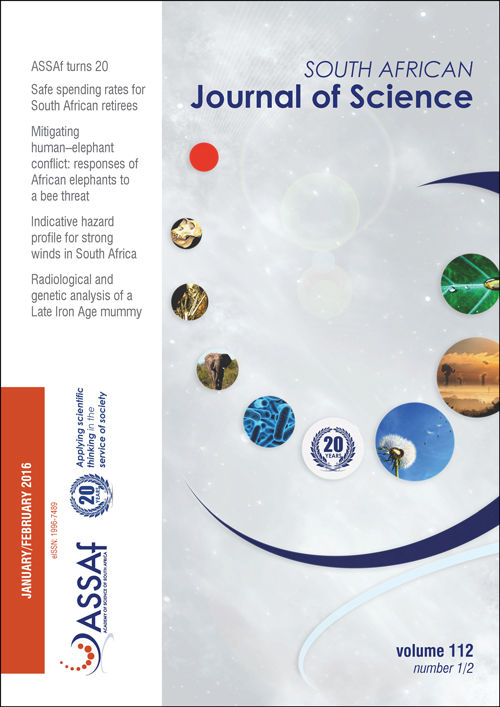Spoilage potential of a novel group of bacteria isolated from dairy products
DOI:
https://doi.org/10.17159/sajs.2016/20150227Keywords:
identification, spoilage, Chryseobacterium, Empedobacter, dairyAbstract
Cold-tolerant bacteria, also known as psychrotrophic bacteria, are notorious contaminants of milk in the refrigerated dairy food chain. These organisms, especially the pseudomonads, may produce heat-resistant enzymes that are responsible for the breakdown of proteins and lipids in milk and dairy products. Such reactions result in a variety of defects in the raw or unprocessed milk that may affect the suitability of such milk for further processing. The enzymes produced may cause defects in long-life dairy products such as cheese, butter and long-life milk. In the present study, a range of 18 yellow pigmented psychrotrophic bacteria, collectively known as flavobacteria, were isolated from local dairy products. One aim of this study was to identify these bacteria to species level using molecular techniques. A second aim was to determine the spoilage potential of these organisms based on profiles generated by the BIOLOG system (that may relate to hydrolytic enzymes produced). Of the 18 isolates, 14 belonged to the genus Chryseobacterium while 4 were identified as Empedobacter isolates. The most active spoilage organisms in this group were shown to be C. bovis, C. shigense and E. brevis. These findings illustrate that enzymatically catalysed defects in dairy products should not be attributed solely to acknowledged psychrotrophic bacteria such as the pseudomonads, but that flavobacterial species may also be actively involved.
Published
Issue
Section
License

All articles are published under a Creative Commons Attribution 4.0 International Licence
Copyright is retained by the authors. Readers are welcome to reproduce, share and adapt the content without permission provided the source is attributed.
Disclaimer: The publisher and editors accept no responsibility for statements made by the authors
How to Cite
- Abstract 458
- PDF 720
- EPUB 206
- XML 219












.png)